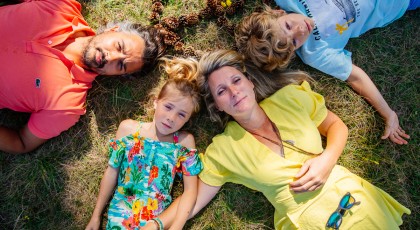Justice and Film Festival - Les rencontres de La Rochelle
From Friday 4 to Saturday 5 April 2025.
Justice and Film Festival - Les rencontres de La Rochelle
Cinéma CGR Dragon - 8 Cours des Dames
17000 - La Rochelle
17000 - La Rochelle
Each year, the festival offers a two-day event focusing on a different theme.
14th edition: Justice and madness, can mad people be judged?
14th edition: Justice and madness, can mad people be judged?
These encounters are open to everyone, from the large judicial family to students and the general public. The entirely free screenings give everyone the chance to see, re-watch or discover magnificent films, both old and new, which serve as the backdrop and pretext for the debates that follow the screenings.
The guests, who come from the world of the judiciary, the press, the cinema and the university, enrich our thinking on issues that are always topical. What's more, the guests, almost all of whom have written on the chosen theme, present and sign their works in a convivial atmosphere.
What is madness? How do justice and medicine deal with madness?
Article 122-1 of the French Penal Code states: A person is not criminally liable if, at the time of the act, he or she was suffering from a psychic or neuropsychic disorder which abolished his or her discernment or control over his or her actions. It is therefore considered that, having been unaware of any wrongdoing, this person could not have committed a fault, nor a fortiori intended the crime, misdemeanor or contravention.
As a result, depending on the stage at which they are found to be irresponsible on account of mental disorder, persons are either dismissed by the examining magistrate, or acquitted or released by the criminal court. The problem is that people who have been declared not criminally responsible may, once considered cured, be released and once again pose a threat to society.
In the debate that will follow the film screenings, our guests will focus on this essential question, which regularly crops up in the offices of examining magistrates and psychiatric experts: "Can mad people be judged and punished?
But the subject goes far beyond that. Prisons cannot be ignored, given that a recent epidemiological study shows that at least 20% of inmates have psychiatric disorders and serious behavioral problems. How does the prison administration deal with this problem, what is the role of the liberty and detention judge, that of psychiatrists, involuntary hospitalization, etc.?
The case of the killer of the nurses at the Pau psychiatric hospital on December 18, 2004, is one of many to attract particular attention. Romain Dupuy, confined for 20 years in a unit for the seriously ill (UMD), recently applied to the courts to be released from total confinement, which raises the question of how to manage the mentally ill.
To illustrate this theme, the documentary film "12 jours" by Raymond Depardon on involuntary hospitalization will be shown on Friday morning April 4 at 9am, and "La prochaine fois, je viserai le cœur" will be shown on Saturday April 5 at 2.30pm. This film is a cinematographic adaptation of the criminal career of Alain Lamare, nicknamed "le tueur de l'Oise", played by actor Guillaume Canet, who, suffering from a rare form of schizophrenia, was declared irresponsible and was unable to stand trial.
To discuss the subject, psychiatrist Michel Dubec, a court-approved expert who has provided expert assessments for many infamous criminals and serial killers (Carlos, Romain Dupuy, Guy Georges, Patrice Allègre, etc.), and author of numerous articles on the subject.) and author of numerous articles and books, most recently "Le plaisir de tuer" ("The Pleasure of Killing"), is Paris criminal lawyer Christian Saint Palais, partner of Jean-Yves Le Borgne, lawyer for Romain Dupuy and legal columnist for Le Figaro, Stéphane Durand-Souffland, who has covered the most important criminal cases of the last twenty-five years, including the Pau affair, and who has just published "Service après-crime", and a liberty and detention judge (JLD) who works at the Cadillac sur Gironde psychiatric hospital, where the most difficult mental patients are treated.
As every year, the Friday morning session at 9 a.m. is specially reserved for local high-school students, but is also open to all, subject to availability.
The Saturday April 5 session must start at 2:30 p.m. to allow guest authors to offer and sign their works from 1:45 to 2:30 p.m. in the cinema lobby.
The guests, who come from the world of the judiciary, the press, the cinema and the university, enrich our thinking on issues that are always topical. What's more, the guests, almost all of whom have written on the chosen theme, present and sign their works in a convivial atmosphere.
What is madness? How do justice and medicine deal with madness?
Article 122-1 of the French Penal Code states: A person is not criminally liable if, at the time of the act, he or she was suffering from a psychic or neuropsychic disorder which abolished his or her discernment or control over his or her actions. It is therefore considered that, having been unaware of any wrongdoing, this person could not have committed a fault, nor a fortiori intended the crime, misdemeanor or contravention.
As a result, depending on the stage at which they are found to be irresponsible on account of mental disorder, persons are either dismissed by the examining magistrate, or acquitted or released by the criminal court. The problem is that people who have been declared not criminally responsible may, once considered cured, be released and once again pose a threat to society.
In the debate that will follow the film screenings, our guests will focus on this essential question, which regularly crops up in the offices of examining magistrates and psychiatric experts: "Can mad people be judged and punished?
But the subject goes far beyond that. Prisons cannot be ignored, given that a recent epidemiological study shows that at least 20% of inmates have psychiatric disorders and serious behavioral problems. How does the prison administration deal with this problem, what is the role of the liberty and detention judge, that of psychiatrists, involuntary hospitalization, etc.?
The case of the killer of the nurses at the Pau psychiatric hospital on December 18, 2004, is one of many to attract particular attention. Romain Dupuy, confined for 20 years in a unit for the seriously ill (UMD), recently applied to the courts to be released from total confinement, which raises the question of how to manage the mentally ill.
To illustrate this theme, the documentary film "12 jours" by Raymond Depardon on involuntary hospitalization will be shown on Friday morning April 4 at 9am, and "La prochaine fois, je viserai le cœur" will be shown on Saturday April 5 at 2.30pm. This film is a cinematographic adaptation of the criminal career of Alain Lamare, nicknamed "le tueur de l'Oise", played by actor Guillaume Canet, who, suffering from a rare form of schizophrenia, was declared irresponsible and was unable to stand trial.
To discuss the subject, psychiatrist Michel Dubec, a court-approved expert who has provided expert assessments for many infamous criminals and serial killers (Carlos, Romain Dupuy, Guy Georges, Patrice Allègre, etc.), and author of numerous articles on the subject.) and author of numerous articles and books, most recently "Le plaisir de tuer" ("The Pleasure of Killing"), is Paris criminal lawyer Christian Saint Palais, partner of Jean-Yves Le Borgne, lawyer for Romain Dupuy and legal columnist for Le Figaro, Stéphane Durand-Souffland, who has covered the most important criminal cases of the last twenty-five years, including the Pau affair, and who has just published "Service après-crime", and a liberty and detention judge (JLD) who works at the Cadillac sur Gironde psychiatric hospital, where the most difficult mental patients are treated.
As every year, the Friday morning session at 9 a.m. is specially reserved for local high-school students, but is also open to all, subject to availability.
The Saturday April 5 session must start at 2:30 p.m. to allow guest authors to offer and sign their works from 1:45 to 2:30 p.m. in the cinema lobby.
This translation is generated automatically
Adequate translation ?
From
FreePériodes d'ouvertures
From Friday 4 to Saturday 5 April 2025.Infos pratiques
Animaux
Animaux refusés
Langues parlées
French
Prices
Free of charge.









